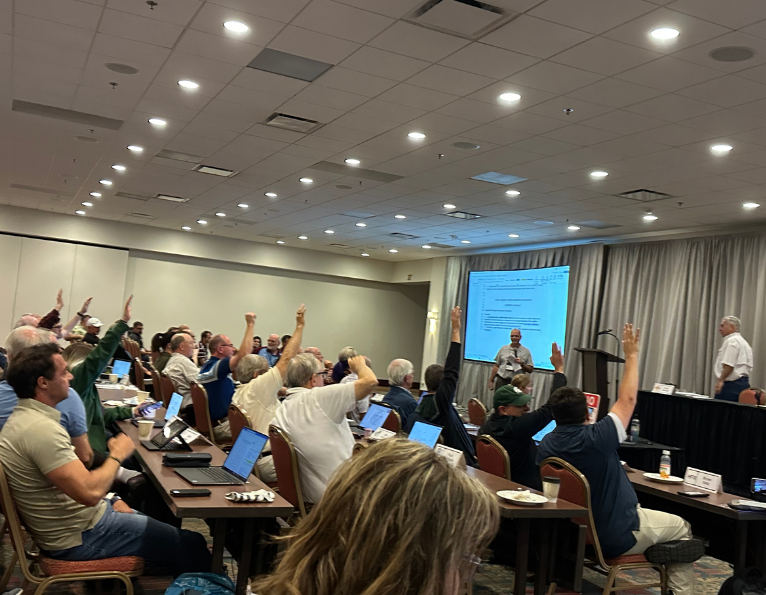Related News Articles
ATSSA’s 2025 New Products Rollout Report details the latest ideas for protecting workers, motorists and pedestrians
ATSSA’s 2025 New Products Rollout Report details the latest ideas for protecting workers, motorists and pedestrians NPRO entries offer cutting-edge…
NCUTCD Midyear Meeting provides update on MUTCD adoption
NCUTCD Midyear Meeting provides update on MUTCD adoption DES MOINES, Iowa – Eight states have completed the process of adopting…
ATSSA Worker Protection Toolkit equips leaders for preventing, responding to tragedy
ATSSA Worker Protection Toolkit equips leaders for preventing, responding to tragedy ATSSA’s Worker Protection Toolkit draws on the research and…


